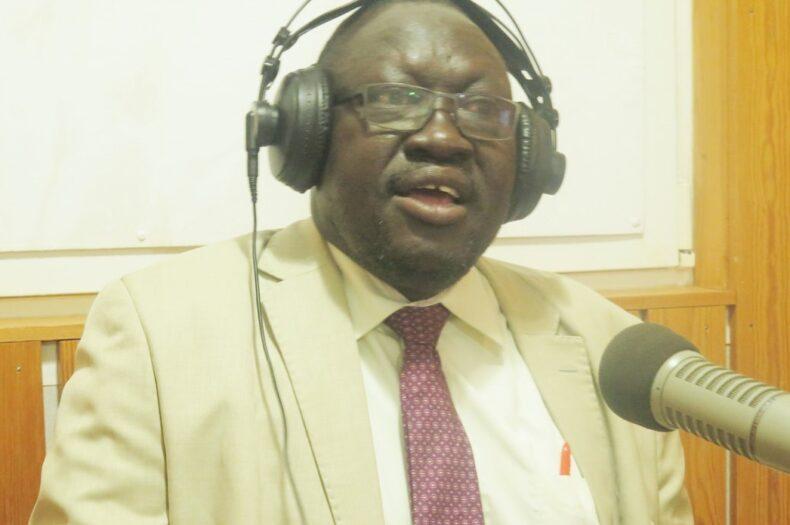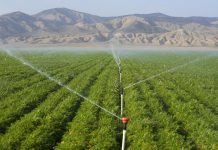Africa-Press – South-Sudan. The newly appointed Bank of South Sudan governor, Moses Makur Deng, jumped to the list of crucial shapers of the country’s economy after being handed the assignment on Monday.
His entry into the summit of the country’s banking and fiscal policymaking organ, after succeeding, makes his boss a potential recipient of honey-sweet or bitter-pill endeavour, thanks to the volatile economic situation.
The country’s prices of commodities are on a downward trajectory and the economy suffers from instability, leaving citizens to make a living out of scarce resources.
The question that pops up is whether Mr Deng, who is talked about very highly in the banking industry, will be able to halt the economic chaos.
The South Sudanese economy has for a long time suffered a notch-high decline, with the dollar teasing South Sudanese Pounds at a staggering rate. Although the exchange rate has been stable for a while after the government initiated the Public Finance Management (PFM) reforms to bring solace to the helpless citizens; the truth is that it is not everlasting.
Beginning the year on a high, President Salva Kiir on Monday relieved Dier Tong Ngor and replaced him with the Director-General for Supervision and Research, Moses Makur Deng.
By being a bank governor, Deng is now tasked with overseeing and controlling the banking industry by setting monetary and regulatory policies, determining interest rates, maintaining price stability, controlling the national money supply and issuance, and foreign exchange currency rates and gold reserves.
According to the website of the Bank of South Sudan, the mission of the bank is “to foster price stability, sustainable economic growth, and a sound financial system in the Republic of South Sudan through an excellent regulatory framework, monetary and exchange rate operations, and advisory and banking services.”
It serves 30 commercial banks and roughly 60 forex bureaus, while four forex bureaus are pending approval of their licenses. The country is also flooded with an outdoor currency exchange market termed as “Black Market”, where official exchange rates are sometimes replicated.
Deng’s predecessor, Mr Ngor had been championing the auctioning of dollars to commercial banks, which he said would be doubled to $16 million during the 2021 festive season.
However, no solid remedies have been seen as food prices remain high and the exchange rate against the US dollar stood as of yesterday at 441.3853, buying: 428.3395, and indicative: 434.8624.
Although much is not known about Deng’s expertise by the public, a renowned economist in the government exudes confidence that he is fully armed for the challenge.
“Son of the bank”
Dr Abraham Maliet Mamer, the economic advisor in the office of the Vice President for the Economic Cluster, Dr James Wani Igga, believes that the “Son of the Bank” will deliver because he is properly pruned for the job.
“I think in terms of employment or appointment as the governor, it is correct because he has been in this bank since the beginning,” Dr Maliet said.
Familiar environment
He stressed the need for the Ministry of Finance to work hard to initiate policies that would be followed by the new Governor of the Bank.
Maliet called on the minister of finance to make good use of the economists in the country to devise the right approach to counter the dwindling economy.
“What I would like the new Minister of Finance to do is to embark on working with national economic experts so that they develop a sound economic policy,” he stated.
“The Minister should collect all the brains of this country together with the head of economic cluster (Dr Wani Igga), and sit down to develop a new policy.”
He reiterated the need to uplift non-oil revenue by developing a taxation policy so that the country could not solely depend on oil as the only source of income. He said that economic and financial growth were not tasks of the bank, and thus, the ministry had a huge task to undertake.
“If we continue to go ahead without concrete policies, then we may not be able to address (economic challenges). In terms of the dollar, the dollar is a function of demand and supply, so, if the World Bank continues to eject the dollar, then now we will sustain it,” Dr Maliet added.
Without concrete policies, the country might not make it economically as the economy will continue dwindling, he argues.
“But it is not long-term. The government must come up with policies that generate dollars for us to sustain it.
“We need to develop sound policies in terms of taxation. Revenue should be number one. As you see right now the revenue is completely down, it needs good people, good policies and also the follow-up. The Minister has got a long way to go.”
Stop borrowing
The head of the department of economics at the University of Juba, Dr Moris Madut, during Radio Miraya’s Breakfast show last week disclosed that inflation had hit the country hard for 11 months in 2021, although it remained stable.
Dr Madut attributed the stable commodity prices to relative peace in the country, warning that the country might be hit hard by severe food insecurity as a result of floods and destruction of crops which existed in 2021.
“We expect that despite the challenges that we are still experiencing with COVID-19 being one of them and flooding being another, we expect that at least according to the focus by IMF, the real GDP growth for the financial year 2021/2022 is projected to at least 1 per cent and this will be boosted by a little bit higher oil prices, so there is a significant increase in the oil prices globally,” he said.
Dr Madut said the PFM reforms have so far played a pivotal role and advised that non-transparent oil advances for budget financing should be discontinued and that transparency in the publication of budget implementation updates should be ensured.
He added that there was the likelihood that prices would stabilise towards the middle of 2022 if the new Minister for Finance continues with the reforms started by his predecessor.
“I believe that towards the middle of 2022, there will be a general stabilisation of prices because you have seen that the current Minister of Finance has continued with the reforms already started by his predecessors. So, I believe if he continues implementing such reforms, then we will for sure experience some growth into the new year given the relatively increasing oil prices which right now stand at about 76.5 dollars per barrel,” Dr Madut stated.
“There is seemingly a strong will to continue implementing the reforms that are laid out in the peace agreement, so, if we continue implementing the peace agreement as it is, then we will have a little bit of a stabilised economy going into 2022.”
He advised further that funding the peace process would unlock better opportunities for the country. He added that investing in agriculture would enable the country to be self-reliant and settle the matter of food insecurity.
“The government has to think about investing in agriculture, as you know, 84% of our country, is good for farming. I believe if we put more money into agriculture, it will help relieve the food insecurity across the country,” Madut said.
He stressed that the non-oil revenue had increased from about 1.5 billion before the formation of the economic price management committee, to 3 billion by December 2020, 5 billion at the beginning of 2021, and was expected to have risen roughly to about 10 billion at the end of 2021.
“We really can make good use of our non-oil revenue, and if we close the leakages, then we will be able to finance most of our operations within the country,” he concluded.
For More News And Analysis About South-Sudan Follow Africa-Press






